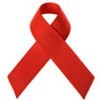By Dennis Daniel (Comptroller, Smart + Strong)
On Sunday afternoon, June 26, my partner and I joined the jubilant crowds on Christopher Street to catch a few minutes of New York City’s 41st annual Pride March, then ducked into the historic Stonewall Inn to meet friends. Having lived in New York for 30 years, I have attended many of these parades, but this one was especially celebratory because on Friday night the New York State Senate passed same-sex marriage equality.

It occurred to me how often during the past four decades the gay community has gathered there at Sheridan Square, sometimes celebrating victories and sometimes confronting discrimination and bolstering each other to fight on after defeats. I think it’s important for us to remember what happened 42 years ago and understand how it has informed a community’s sense of activism.
The basis facts: In the early morning hours of June 28, 1969, the police raided The Stonewall Inn on Christopher Street in Greenwich Village. These raids were nearly monthly rituals orchestrated between the cops and organized crime (who owned the gay bars and paid off the cops). But something about that sultry Saturday morning was different. Some think that the “queens” were upset over Judy Garland’s funeral the previous afternoon; I think Judy would have liked that theory. But for whatever reason, during this raid, the patrons, many of whom were drag queens or transgender, fought back. A crowd gathered. The cops were trapped inside the bar. The crowd tried to topple the police van and slit its tires. Fires were started. Pennies and beer bottles flew through the air. The crowd started kick lines singing bawdy lyrics to The Howdy Doody Show theme song.
By 4 a.m. things had quieted down. Thirteen people had been arrested, some in the crowd had been hospitalized and four police officers were injured. The Stonewall Inn was in shambles. And the next night, thousands gathered and rioted again, replete with the kick lines and fires in garbage cans. Sporadic altercations occurred between police and gays over the next few nights and then quieted down. But a sea change had occurred. Gays were not going to be kicked around anymore.
It should be noted that although Stonewall is commonly viewed as the birth of the modern gay civil rights movement, the movement did not spring forth fully formed like Aphrodite from the sea foam. Pioneers like Harry Hay and the Mattachine Society had been quietly laying the groundwork for decades. It would still be another 34 years before the 2003 U.S. Supreme Court decision in Lawrence v. Texas would strike down all sodomy laws in the United States.
On June 28, 1970, the one-year anniversary of the start of the Stonewall Riots, the first Pride March in U.S. history was held in NYC, with simultaneous marches in Los Angeles and Chicago. In the following years, marches began in major cities across the country and the world.
Twelve years later, in June 1981, the first cases of AIDS in the gay community were recognized. But this time, the response was faster. Within just a few years, organizations such as GMHC, ACT UP and TAG formed and began combating the powers that be. The community had learned something essential--that like Peter Finch in Network, sometimes the only effective response is, “I’m as mad as hell, and I’m not going to take it anymore.”
Did those rioting queens in 1969 see themselves as brave pioneers? Probably not. They were just pissed off. And sometimes, that’s what it takes.








3 Comments
3 Comments